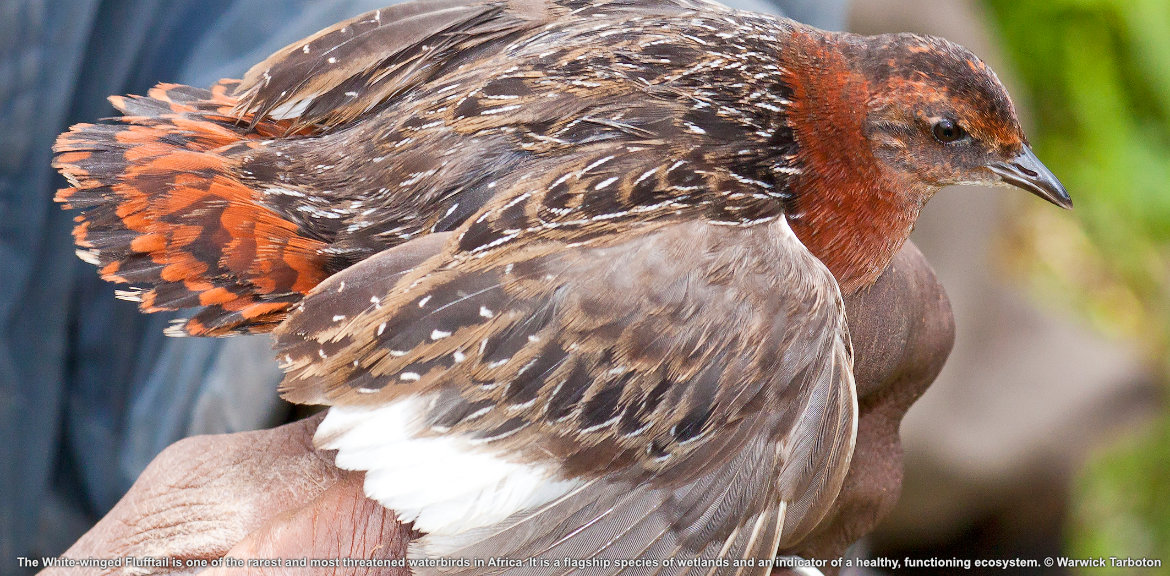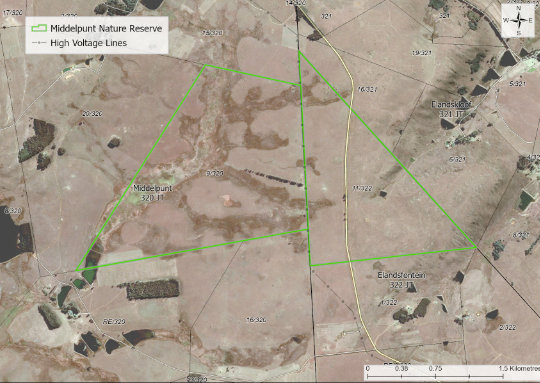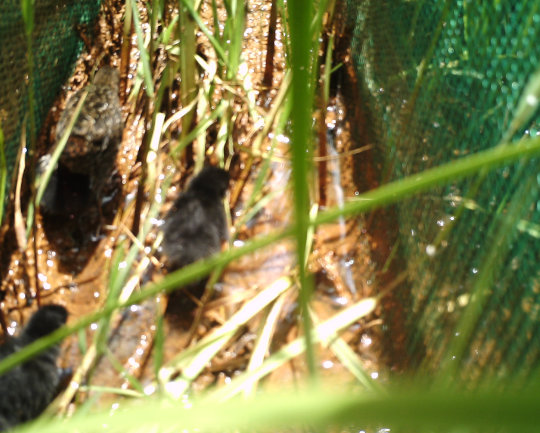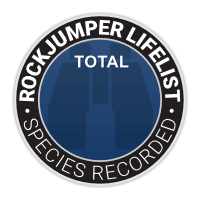
Support the declaration of Middelpunt Nature Reserve to help safeguard the only confirmed breeding site of the Critically Endangered White-winged Flufftail. Add your name to our support letter by using an online submission form in the link at the end of the article.

The White-winged Flufftail (Sarothrura ayresi) is listed as Critically Endangered, with an estimated global population size of fewer than 250 mature individuals. It is considered to be the rarest and most threatened rallid species in Africa. Ethiopia and, more recently, South Africa are the only two countries where the White-winged Flufftail is known to breed, with only one confirmed site in South Africa: Middelpunt Wetland. The White-winged Flufftail was first seen at Middelpunt Wetland in 1992 after many years with no presence records in the country. Those who saw the bird were concerned about the condition of the wetland and engaged with the owner to rehabilitate and conserve it. A lease was eventually signed in 1994 and Middelpunt Wetland Trust was formed as the vehicle through which to operate. The Trust succeeded in having five kilometres of artificial drainage channels filled in 1995, immediately improving the condition of the wetland. In 2002, Dullstroom Trout Farm purchased the farm portion that contains most of Middelpunt Wetland to protect the main catchment area for their trout dams directly downstream of the wetland, and to safeguard the White-winged Flufftail and its habitat. BirdLife South Africa was invited to administer Middelpunt Wetland Trust in 2011 and since then has led national efforts to conserve this highly threatened species.
Dullstroom Trout Farm has been supportive of BirdLife South Africa’s research objectives by allowing studies to take place at Middelpunt Wetland. It is through these studies that the first breeding record of the White-winged Flufftail was made in South Africa. Dullstroom Trout Farm joined the Greater Lakenvlei Protected Environment in 2017. Whilst this form of protection limits activities that could threaten biodiversity, it does not prevent them entirely. Middelpunt Wetland is the only confirmed breeding site of the White-winged Flufftail in the southern hemisphere and thus requires the appropriate legislation to safeguard this irreplaceable habitat for many years to come. Middelpunt Wetland not only provides a haven for White-winged Flufftail, put also provides numerous ecosystem services to downstream users through water resource management and the global community through carbon sequestration in peat layers.
BirdLife South Africa proposed the declaration of a private nature reserve for Dullstroom Trout Farm and a neighbouring property belonging to Eland’s Valley Guest Farm, which supplies Middelpunt Wetland with lateral inputs (seeps). With assistance from the provincial conservation governing body, Mpumalanga Tourism and Park Agency, the intent to declare the reserve has since been signed by the Mpumalanga MEC for Agriculture, Rural Development, Land and Environmental Affairs (Provincial Gazette No. 3361). The public participation process takes place from 29 March to 30 May 2022.

Dr Kyle Lloyd
Rockjumper Fellow of White-winged Flufftail Conservation
BirdLife South Africa
Please consider helping us declare the reserve by adding your name to our support letter. The link to the online submission form can be found on the Landscape Conservation Programme webpage.

The Rockjumper Fellow of White-winged Flufftail Conservation
Kyle Lloyd grew up in the Western Cape and KwaZulu-Natal provinces of South Africa, where he developed a passion and love for nature. He studied for his BSc and BSc Honours at Rhodes University where like-minded people soon had him bitten by the birding tick. During the course of his studies, Kyle developed a concern for humanity’s abuse of natural resources and the lack of communication between scientists and practitioners. Kyle pursued his MSc in Conservation Biology at the FitzPatrick Institute of African Ornithology at the University of Cape Town where he was equipped with the tools needed to address environmental concerns. In desperate need of a break from studying, Kyle then grasped the opportunity to spend 13 months at Marion Island, where he collected data about elephant seals, fur seals and killer whales in a sub-Antarctic wilderness. He then completed his PhD on the Population and individual life history consequences of polygyny in male southern elephant seals at the University of Pretoria before starting his career at BirdLife South Africa. ‘I see this position as the perfect marriage of research and public engagement that uses evidence-based strategies to inform management decisions. I feel truly honoured to be a part of this endeavour and am grateful for the support of Rockjumper Birding Tours.’
